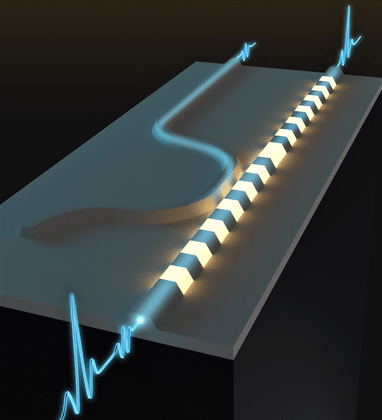Engineers at Caltech have developed an optical switch which can enable ultrafast signal processing and computing.

Optical devices are capable of transmitting signals faster than electric devices. These devices use light pulses for transmitting. This feature, mainly, has paved way for the revolutionary growth of optics. A team led by Alireza Marandi, assistant professor of electrical engineering and applied physics at Caltech, has developed an optical switch based on the optical nonlinearity. This switch could enable data processing using photons eventually.
Switches are the simplest, yet the most important component of a computer. The signal from the switch either allows it to pass through or halts it based on the set conditions. This is the on/off property of a switch is the foundation of the logic gates and binary computation. The new optical switch has proved that the same function can be performed with photons, eliminating the challenge that electrons interact with each other.
Material used in Optical switch:
The team has used lithium niobate which is a combination of niobium, lithium and oxygen. This material is highly nonlinear with special arrangements of atoms in the crystal. This atomic arrangement produces output signals that are not proportional to the input signals.
Marandi and team created a lithium niobate integrated device that allows confinement of light even in smaller space. They found that smaller the space, greater the intensity of the light. This provides a stronger nonlinear response. When the duration of the light pulses are reduced, the pulses propagated through the device with higher peak power. The spatiotemporal confinement of light enhances the nonlinearity strength for a given pulse energy.
Splitter optical switch:
The new nonlinear splitter enables the switching in less than 50 femtoseconds (a femtosecond is a quadrillionth of a second) by routing the pulses to two different outputs. The outputs are routed based on their energy.






